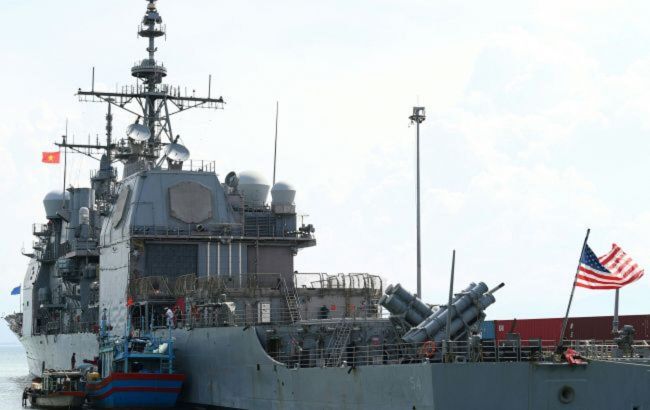Russia and NATO launch simultaneous Baltic drills: escalation risk
 Illustration: US warship (Getty Images)
Illustration: US warship (Getty Images)
At the beginning of June, NATO countries will hold their annual Baltic Operations exercises in the Baltic Sea. In response, Russia will also deploy its fleet at the same time. This could increase tensions in the region, according to the German publication Bild.
Recently, the Kremlin has been trying to convince the world, especially Europe, that it has no plans for new aggression. However, in practice, Russia’s actions tell a very different story.
NATO's annual naval exercises
For over 50 years, NATO countries have held the Baltops naval exercises in the Baltic Sea every early June. Since 1971, these have been among NATO’s largest maneuvers in the Baltic region.
The exercises aim to improve operational coordination among allies and readiness to respond to potential threats in the Baltic region. They include various scenarios such as anti-submarine and air defense operations, mine clearance, amphibious landings, and humanitarian missions.
Russian drills
At the same time, Russia has decided to hold its own military maneuvers in the Baltic - one month earlier than usual. About 20 warships will be deployed to the region for these drills.
Risks and warnings
Experts warn of a high risk of dangerous close encounters between fleets and possible provocations in the exercise zone.
Security expert Moritz Breik notes that the Russians always behave very aggressively, and the situation in the Baltic Sea could escalate into conflict.
However, Breik doubts Russia would launch a full-scale attack during the exercises but believes provocations are likely. For example, Russian forces might block NATO ships or fly aircraft close to Alliance vessels.
According to Breik, the main goal of such actions is to test how quickly NATO will respond. Additionally, Russia aims to send a signal that NATO is weak and vulnerable.
Another maritime expert, Johannes Peters, believes the Russian fleet will use the exercises for reconnaissance and monitoring of the opponent.
On May 29, a Russian anti-submarine warship performed risky maneuvers near the German frigate Bavaria and shadowed it to the Baltic Sea.
Additionally, the Estonian Navy recently reported an incident involving the sanctioned vessel Jaguar. The ship ignored orders to stop, the crew refused to cooperate, and it did not change course in international waters of the Baltic Sea.
Estonian Foreign Minister Margus Tsahkna noted that Russia scrambled a fighter jet precisely when Tallinn was trying to intercept this oil tanker in the Baltic Sea.

